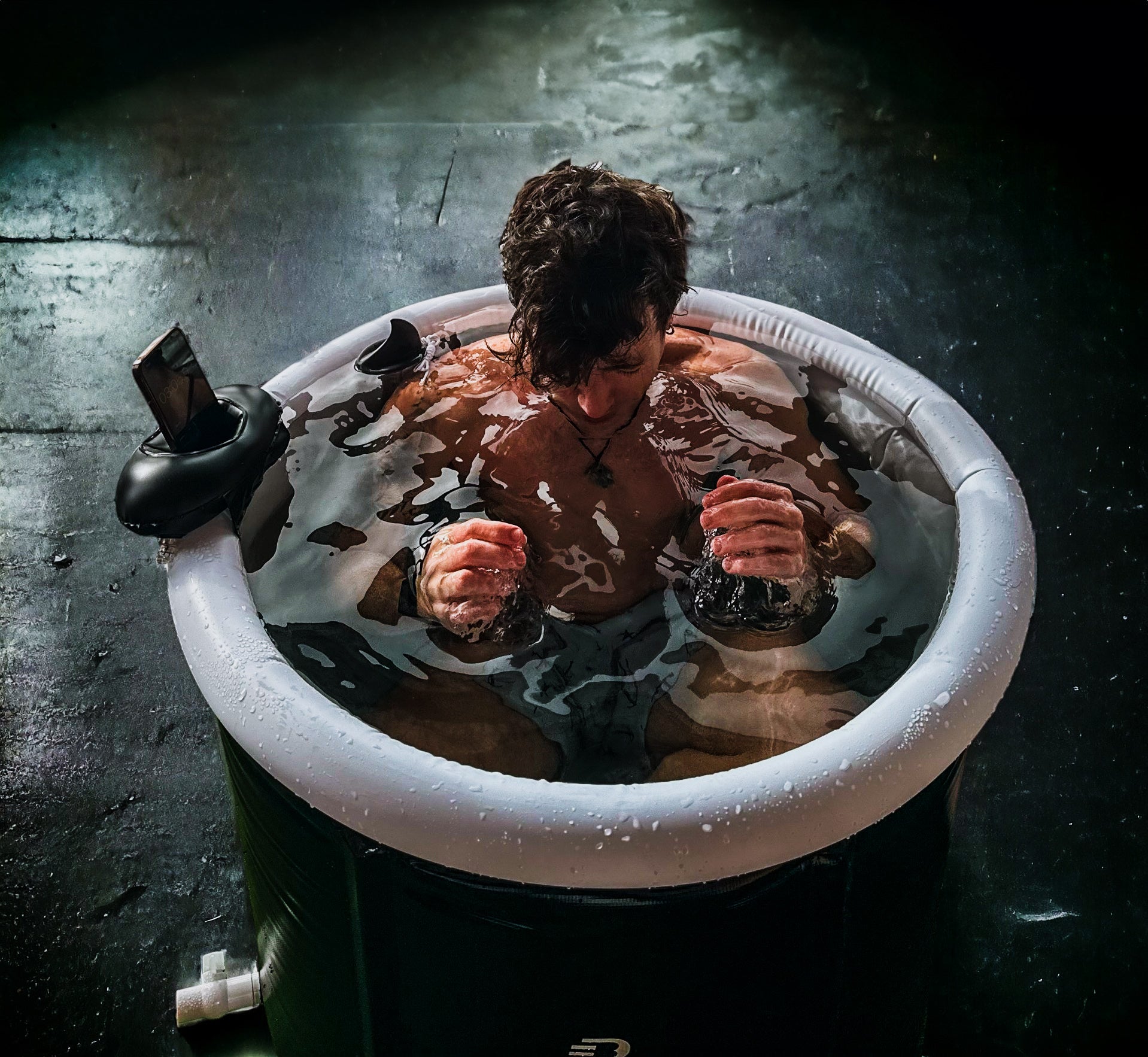Are Ice Baths Safe For Pregnancy? Well... It depends.
Welcome to our comprehensive guide on the safety of ice baths during pregnancy. As always, we strive to give concise, to-the-point, and practical advise on everything related to cold exposure.
Let's have a look!
Is It Dangerous to Ice Bath Pregnant?
As much as I would love to give you a straight answer, it is not a simple yes or no question. While ice baths can offer benefits for pregnant women, there are also potential risks to consider.
Pregnancy is a delicate time, and extreme temperature changes can affect both the mother and the developing baby.
Benefits of Ice Baths During Pregnancy
Ice baths during pregnancy can offer a range of potential benefits for expectant mothers, as well as to any human being.
In the later stages of pregnancy, however, inflammation tends to be a significant issue. Pregnant women need a lot of protein, and a lack of it can lead to conditions like toxemia and preeclampsia, marked by swelling, especially around the ankles.
Cold exposure can help reduce swelling (edema) and maintain insulin sensitivity, which is crucial due to the high metabolic demands during pregnancy.
Now, the reality is that there is limited scientific research specifically focused on cold water immersion during pregnancy, however there are a few studies that have shown positive results. For example, a study published in the Journal of Obstetric, Gynecologic & Neonatal Nursing found that cold immersion, including ice baths, could help reduce perineal pain and swelling after childbirth.
Other potential benefits
-
Reducing inflammation and swelling
-
Relieving muscle soreness and fatigue
-
Boosting circulation and lymphatic drainage
-
Improving sleep quality
-
Enhancing mental clarity and focus
Yes, the list could be applicable to anyone, however, these benefits can be particularly helpful during pregnancy when the body is undergoing significant changes and stress.
Potential Risks of Ice Baths During Pregnancy
There are a few potential risks to consider, however, the degree in which any of these could affect an expectant mother will depend on her tolerance to cold temperatures and her cold plunging experience.
Possibility of Introducing Cold Into The Uterus
Some experts argue there's a slight chance that cold can penetrate the uterus and potentially harm the fetus, although there's no direct evidence that can confirm this.
If this is something that worries you, make sure to keep the water at a moderate temperature (around 60 degrees). More on this later.
Shock Response
Sudden exposure to cold can cause a shock response, characterized by rapid breathing, increased heart rate, and elevated blood pressure. This stress response could potentially influence uterine activity.
Shock can trigger a spike in blood pressure, which can be problematic for pregnant women with pre-existing conditions.
Core Temperature Regulation
The body works to maintain its core temperature by shivering and increasing metabolic activity. Prolonged exposure to cold can lower the core body temperature, which might indirectly impact the uterus.
Best practice will be to avoid extremely cold temperatures where the mothers feels uncomfortable and/or is not used to.
Reduced Blood Flow
The vasoconstriction response might reduce blood flow to the uterus, which could potentially limit the oxygen and nutrient supply to the fetus. This effect is generally more concerning with prolonged or extreme exposure to cold.
How To Cold Plunge Safely While Pregnant
1. Take it Slow
This will depend on how much experience the expectant mother has. As a rule of thumb, I'll say to start with short sessions of 30 seconds to 1 minute and gradually increase the duration as your body adapts.
Don't stay for more than 3 minutes—as mentioned earlier, you'll want to avoid extended exposure!
2. Don't Plunge Alone
Always have someone nearby when you're taking an ice bath, in case you need assistance or start feeling unwell.
3. Listen to Your Body
Pay attention to how you feel during and after the ice bath. If you experience any discomfort, dizziness, or shortness of breath, then maybe it's a sign that you should stop.
4. Additional Safety Measures
To further enhance your safety, consider the following measures:
- Stay Hydrated: Drink plenty of water before and after your cold plunge to prevent dehydration.
- Limit Time: Start with short sessions and gradually increase duration if comfortable.
- Avoid Extreme Cold: Ensure the water temperature is comfortably cold and not too extreme. I'll suggest anywhere between 53 and 60 degrees.
- Stay Warm Afterward: Wrap yourself in warm towels or blankets to prevent rapid temperature changes.
- Consult Your Doctor: If you have any concerns or pre-existing medical conditions, consult your doctor before attempting cold plunges during pregnancy.
Alternatives to Ice Baths
If after reading this article and carefully considering both the benefits and the potential risks you decide that's best to avoid cold therapy during your pregnancy, then maybe you should consider some of the alternatives:
Cold Showers
Cold showers are still amazing and can provide many of the benefits that ice baths have. Provided you are keeping them short and at a moderate temperature of about 53-60 degrees, then there shouldn't be any risks.
Cold Compresses
While cold compresses are generally aimed to apply the cold to specific areas of your body and will not bring the general benefits of cold water immersion, it can still help reduce inflammation and help with sore muscles without any adverse effects.
What About Ice Baths After Giving Birth?
After giving birth, there are experts who suggests switching to heat (like saunas) rather than cold.
Heat is considered beneficial for breastfeeding mothers as it helps keep fluids moving through the body, which is essential for producing breast milk.
Note that heating is NOT recommended DURING pregnancy, as it has been proven to be bad for the baby, which is why OB/GYN's generally recommend avoiding saunas and hot tubs before giving birth.
Disclaimer
This article is for informational purposes only and should not be considered medical advice. Always consult with a qualified healthcare professional before making decisions about your health, especially during pregnancy.
While I've strived to provide accurate and up-to-date information, please note that the content presented here is general in nature and may not apply to every individual. Factors such as pre-existing medical conditions, gestational age, and overall health can play a significant role in determining the suitability of ice baths during pregnancy.
My Opinion
I honestly hate to give you an ambiguous answer, but the truth is that there's still no strong evidence that can support neither the benefits nor the risks of cold-water immersion during pregnancy.
It is my personal opinion that if there's any slight risk of harming the baby, then it'll be best to stay clear of ice baths during your pregnancy months.
If you're an ice bath enthusiast like me and you REALLY NEED your cold exposure (and yes, I totally get it!), then you might as well just stick with cold showers at a moderate temperature. You will still get some of the benefits and your energy levels will go through the roof!
- Tags: Safety


